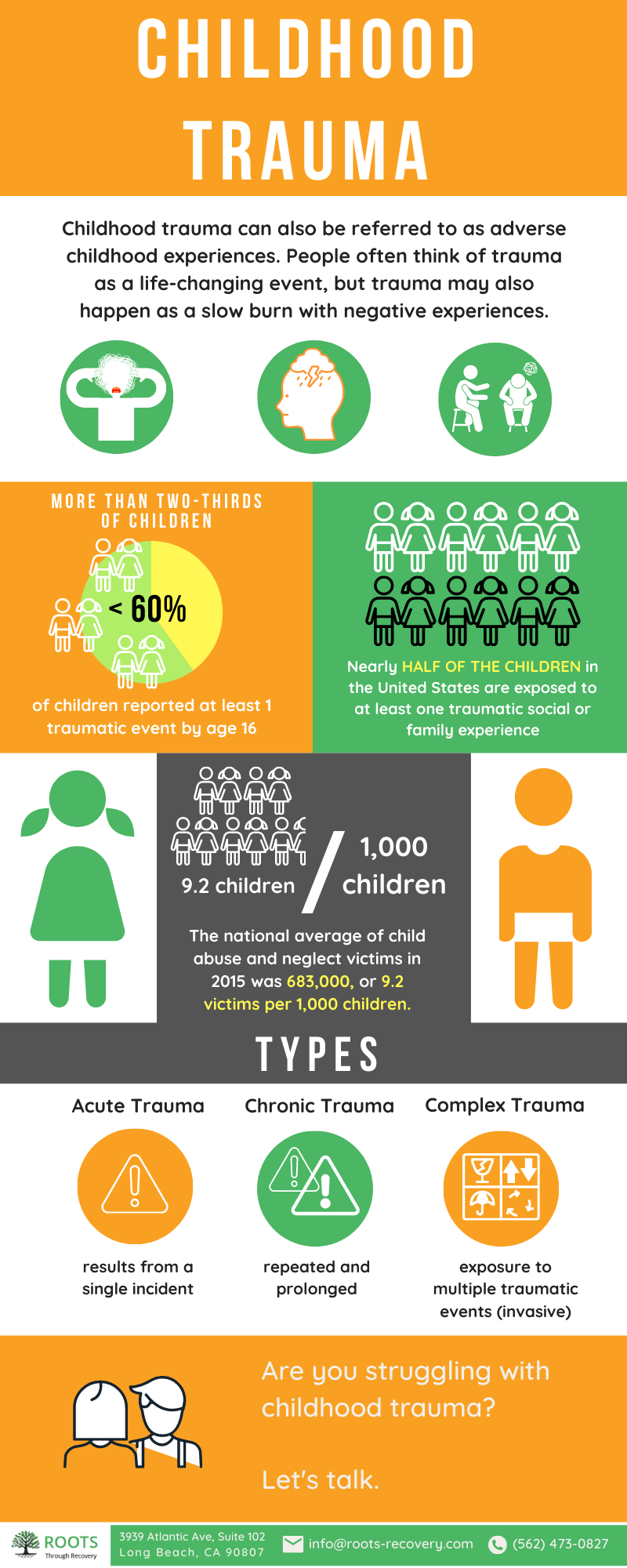
Childhood Trauma and Trauma Treatment
When one thinks of being young, we usually think happy thoughts–fun times, cozy nights, playing outside with our siblings or friends. But you could also be one of the many people who have darker memories clouding the happy ones. Children may go through a range of experiences that classify as psychological trauma, and as one grows up, they may bear the scar all their life. Trauma is subjective, meaning it depends completely on the experience of the person, and could range from witnessing your parents fighting to sexual abuse from a loved one.
If you’re experiencing intense feelings about some memories and want to make sense of how to deal with it, it’s best to seek help as soon as possible. Additionally, you can check out the assessment checklist for free
¿Qué es?
Childhood trauma can also be referred to as adverse childhood experiences. Many times, people think of trauma as a life-changing event, but trauma may also happen as a slow burn. Here are the three types of trauma:
- Acute trauma - results from a single incident
- Chronic trauma - is repeated and prolonged (e.g. abuse or domestic violence)
- Complex trauma - is exposure to multiple traumatic events, usually of an invasive and interpersonal nature
Adverse Childhood Experiences (ACE) Checklist
Thanks to a study conducted by the CDC and Kaiser Permanente Health, there is an understanding on the impact of Adverse Childhood Experiences (ACEs) on a person’s development. Different categories of ACEs were studied to form an assessment we call the ACE Checklist.
¿Cuales son los signos y síntomas?
Attachment
- Difficulty trusting others
- Uncertain about the reliability/predictability of others
- Interpersonal difficulty
- Social isolation
- Difficulty seeking help
- Clingy, difficulty with separations
Physical
- Sensorimotor development problems
- Hypersensitivity to physical contact
- Somatization
- Increased medical problems
- Problems with coordination and balance
Affect Regulation
- Problems with emotional regulation
- Easily upset and/or difficulty calming
- Difficulty describing emotions and internal experiences
- Difficulty knowing and describing internal states
- Problems with communicating needs
Behavioral Control
- Poor impulse control
- Self-destructive behavior
- Aggressive behavior
- Oppositional behavior
- Excessive compliance
- Sleep disturbance
- Eating disorders
- Reenactment of traumatic event/past
- Pathological self-soothing practices
Cognition
- Difficulty paying attention
- Lack of sustained curiosity
- Problems processing information
- Problems focusing on/completing tasks
- Difficulty planning and anticipating consequences
- Learning difficulties, developmental delays
- Problems with language development
Self-Concept
- Lack of continuous/predictable sense of self
- Poor sense of separateness
- Disturbance of body image
- Low self-esteem
- Shame and guilt
Preguntas frecuentes
Q: How does childhood trauma differ from PTSD?
A: Childhood trauma falls under the umbrella term Little T trauma while PTSD falls under Big T trauma. To know more you can read up here.
Q: Can you have PTSD from childhood?
A: Yes. Research has shown that those who experience early childhood trauma are more likely to go on to develop mental health problems in adulthood, such as complex PTSD.
Q: What are ACEs?
A: The ACE study identified 10 ACEs into 3 categories: abuse - physical, emotional, and sexual; neglect - physical and emotional; and household dysfunction - mental illness, mother treated violently, incarcerated relative, substance abuse, and divorce.
Da el primer paso ahora
Si necesita encontrar un lugar que le resulte cómodo y que le brinde apoyo, deje que los médicos clínicos y el equipo de gestión de casos experimentados de Roots Through Recovery trabajen con usted para determinar los próximos pasos a seguir. Queremos que tenga opciones que le brinden a usted y a sus seres queridos los mejores resultados.



